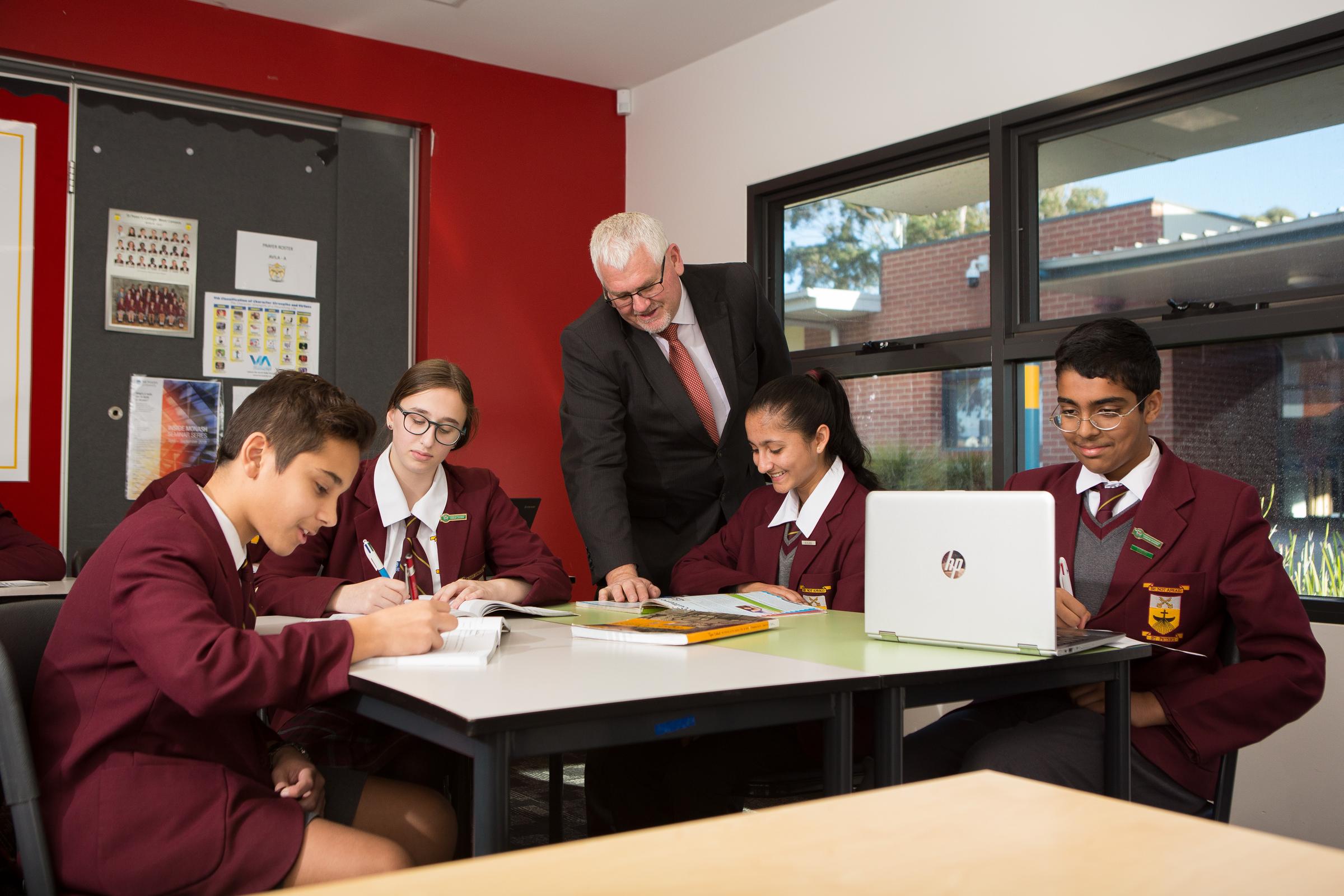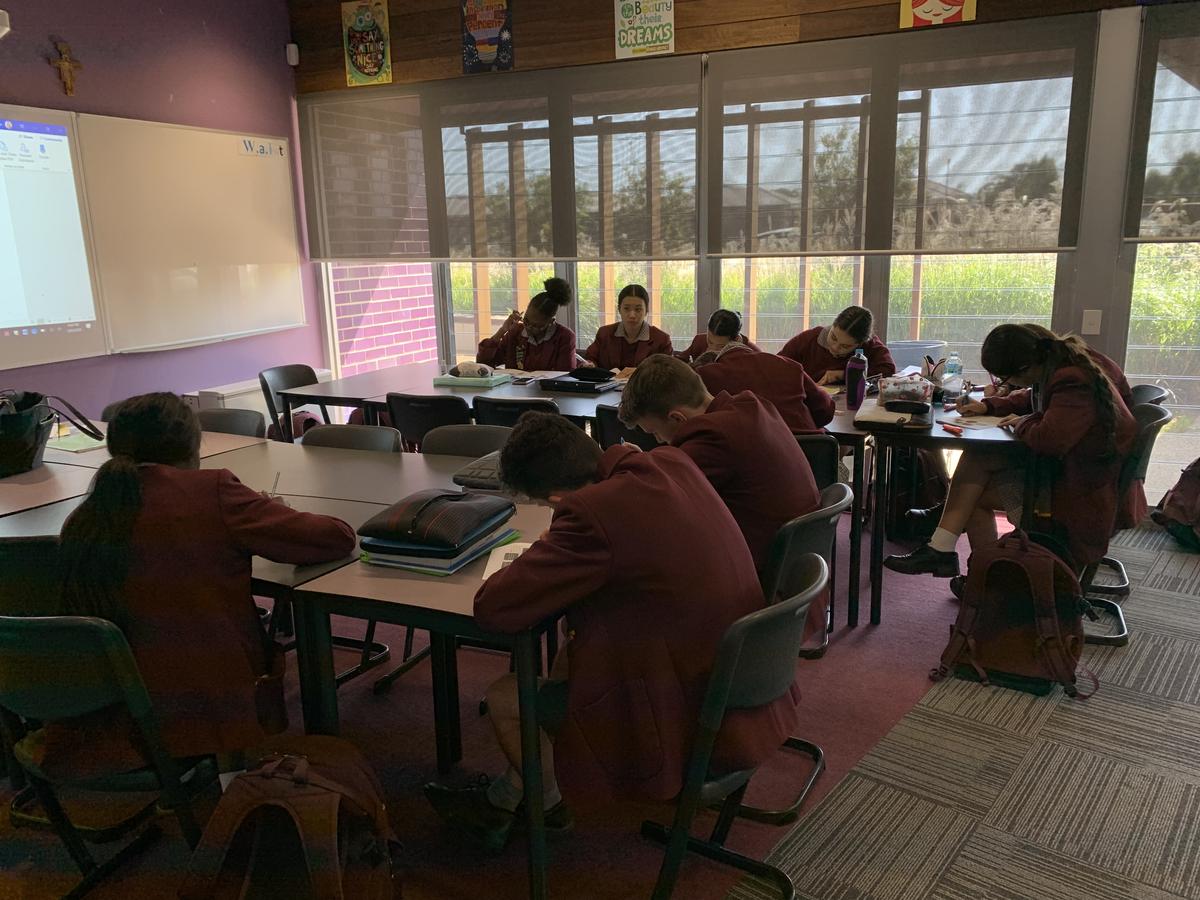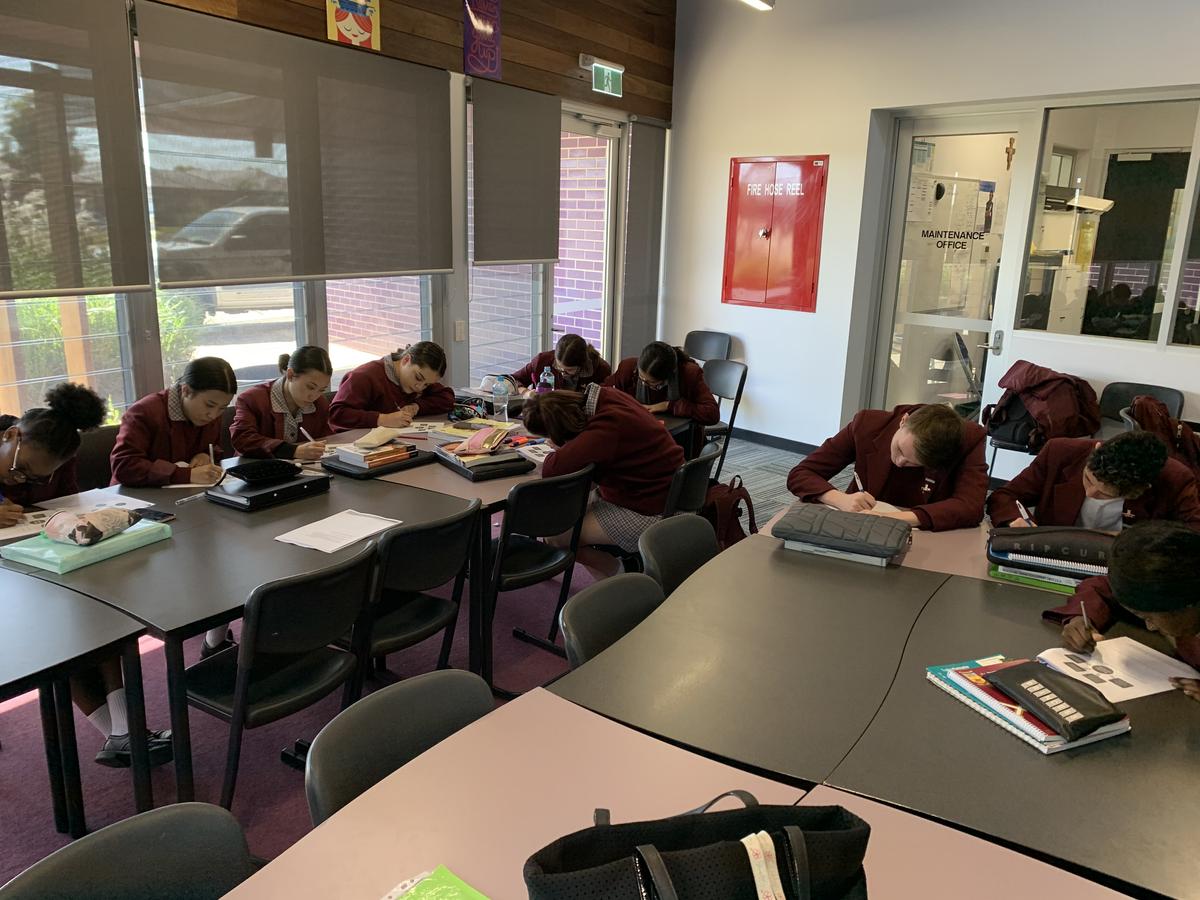Learning & Teaching News

Academic Assembly
This week we have held our Academic Awards Assembly at which we have celebrated our high achieving students of 2019 in their VCAL and VCE Unit 3 & 4 subjects. It is important to celebrate this success as a learning community and hopefully inspire and encourage all our students to commit to the academic year ahead. While this may be particularly true for our Year 12 students, I believe it to be equally applicable to our other year levels.
I spoke at the assembly of our 2020 theme “For I am gentle and humble in heart” from Matthew’s gospel. While this is a description of Jesus, it is also an invitation for all of us to imitate this behaviour. Humility is not always celebrated today in a world that encourages us to shout out our achievements. However, a true understanding of humility is to not to think less of yourself, but to think of yourself less. Humility is ultimately good self-knowledge where you understand your own strengths and limitations and then play to those strengths. This is why we emphasise our character strengths survey and goal setting in our Strive & Thrive Pastoral Program and our Tutor Groups. Students must know themselves and then be assisted in developing and using those strengths to perform to the best of their ability.
I encourage all our students to use their self-knowledge of their skills and strengths and limitations to develop a confidence and belief in themselves. The evidence shows us that self-belief can improve student growth by an extra 6 months in a year of study.
As parents and guardians, your role is to foster that self-belief. Help your child to set SMART (Specific, Measurable, Attainable, Relevant, Timely) goals and encourage them to believe in themselves to keep striving for them. They will have times of despondency and anxiety throughout the year. They will lose motivation. However, if you can remind them of their goals and your belief in them, then that will help them to believe in themselves. You are a major influence on your child’s resilience.
We as staff at St Peter’s certainly believe in them and will continue to raise standards and expectations for our students. We look forward to working with you and all our students in the year ahead.
Year 7 Parents – Family Welcome Evening
In order to continue to develop the relationship our students and parents have with their Learning Advisor, this year the College will invite each Year 7 student and their parents to a 10 minute Learning Conversation. The aim of these initial conversations is to establish a close, open and frank partnership with parents and their Learning Advisor in order to increase parental engagement with their child's education. This pivotal relationship has been shown to improve learning outcomes for students, increase engagement within the classroom and begin the six year relationship between student, parents and the Learning Advisor.
It is expected that all Year 7 parents attend with their sons and daughters. Learning advisors will take a personalised approach in the discussion of NAPLAN data, along with sharing the results of our recent PAT Reading and PAT Numeracy testing. All of this will help facilitate the discussion the College goal of growth for every student, regardless of the levels at which they commence. All Learning Advisors look forward to this opportunity and the development of a pastoral and academic partnership with families from our College community.
Reading Detective Program
In 2020 St. Peter's College is embarking on a structured literacy and reading program for years 7 & 8 students at both Cranbourne and Clyde North Campuses. This program was launched at both Campuses this week. Led by Teacher Librarians, the program will include reading for pleasure combined with Sustained Silent Reading and conferencing with all students to reinforce the basic skills required to gain meaning and understanding from their reading. Three other teachers will also be present in the class to assist students develop these skills that good readers display.
The potential results will not only be an improvement in literacy (including comprehension and vocabulary) but also a love of reading and experimentation with new genres. Our 'sense of urgency' was triggered by data from various test results and declining reading habits. Underpinning our reading program is visits to schools already experiencing improved results, research by educationalists and academics including Professor Margaret Merga from Edith Cowan University, support from our College Leadership and our governing body the Diocese of Sale Catholic Education Limited (DOSCEL). Through the systematic collection of data, we hope to monitor improved literacy results in the future.
All subjects, from Year 7 to 12, require students to be able to read well. The single most important indicator of student retention (students finishing Year 12) is a child’s level of reading at Year 5. It is never too late to help grow your child’s reading ability. A good book before bed is a much better option than screen time as it helps relax the child. Please ask your child how the Reading Detective Program is going and encourage them to read at home too.
After School VCE Classes
It has been inspiring to note the energy and dedication both staff and students have displayed on returning from the Summer holidays. A number of after school classes have already begun where students are seeking that extra assistance from our dedicated teachers. Please encourage your Year 12 student to attend either VCE Study Hub (Tuesdays at Cranbourne, Wednesdays at Clyde North), Homework Club (Monday to Thursday), Maths Help (Mondays) or extra classes (by arrangement with the teacher).
Ms Slykerman’s Health & Human Development class at Clyde North Campus.
David Hansen
Deputy Principal - Learning and Teaching


